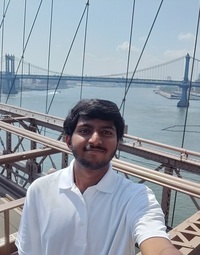PhD Students
Parag joined the HILCPS group as a PhD student in 2015. His interests are in the fields of heat exchanger fouling and modelling of heat exchangers. His other research interests include chemical process simulations using Aspen Plus and detailed modelling of heat exchangers using Aspen Exchanger Design and Rating. Before joining the PhD programme, he was working as a Process Engineer in Synergy Process Systems, Pune where he was involved in preparing PFD, P&ID and Control-Schemes for chemical processes. He has also worked as a production engineer in Esteem Industries Pvt. Ltd. He was also a Junior Research Fellow in Institute of Chemical Technology, Mumbai. In addition to this, he likes to read books, watch movies and occasionally writes popular science on his blog.
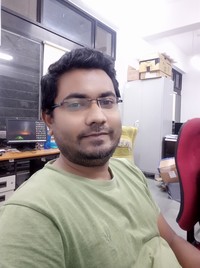
Mohd Umair Iqbal joined the HILCPS group as a PhD scholar in 2017. He pursued his bachelor's degree from the National Institute of Technology (NIT), Srinagar, India. He obtained his Master's degree from the Indian Institute of Technology Gandhinagar, India. After his masters, he worked as an Assistant Professor at NIT Srinagar.
Umair is involved in various research activities encompassing the field of safety and risk assessment. His main area of interest is the study of human reliability. He is actively researching the performance and reliability of control room operators using cognitive engineering approaches. His research on process safety focuses on human error. He is actively working on the cognitive aspects of control room operator performance using electroencephalography (EEG) and eye-tracking, to understand the neural and psychological underpinnings of human performance.
His other interests include playing badminton, chess, and writing columns for newspapers.
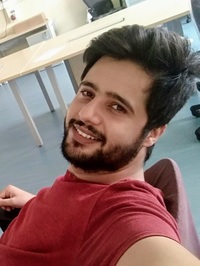
Jaivik Mankad joined the HILCPS group as a PhD Scholar. He completed his B.E. in Instrumentation & Control Engineering from Gujarat Technological University in 2013. He earned his M.Tech in Chemical Engineering in 2016 from the Indian Institute of Technology Gandhinagar, India.
After his B.E., he undertook training in industrial automation from Neo Creative Vision Technologies in 2013-14 where he worked with PLC and SCADA from various manufacturers. During his M.Tech. He worked on Model Predictive Control (MPC) scheme for application on MIMO temperature control system. He is currently working on performance monitoring and control of water distribution networks as a part of his PhD thesis.
His interest lies in the areas of optimization-based control, data science, and machine learning. His research interest lies in the areas of intelligent and cyber-physical design by incorporation of learning and optimization for process control applications. He likes to spend his time reading, coding and travelling.
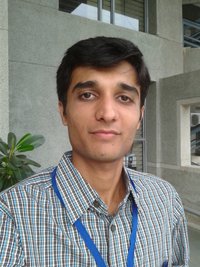
Aatif obtained his Bachelor of Technology in Petrochemical Engineering in 2018 from Zakir Hussain College of Engineering and Technology, AMU, Aligarh. He then joined the HILCPS group as a PhD scholar in the discipline of Chemical Engineering. His research broadly deals with Human Factors in control rooms of safety-critical areas. He is using eye-tracking and EEG technology to assess the cognitive aspects of humans deployed as operators in critical safety domains. The objective of his research is to make the workplace safer and productive by keeping a watch on human operators. In addition to this, he has also worked on wastewater treatment of textile industries. He devotes his free time towards writing and reading Urdu poems.
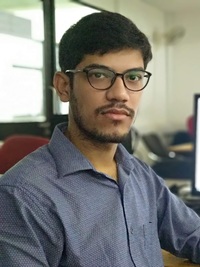
Rahul Madbhavi joined the HILCPS group as a PhD scholar in 2018. He obtained his Bachelor of Technology in Mechanical Engineering in 2016 from the National Institute of Technology Karnataka, Surathkal. After his graduation, he worked as a Big Data Developer at Wipro, Bangalore.
His research interests are in the fields of monitoring and control of cyber-physical systems. He is currently working on sensor placement and state estimation methods for power distribution systems. His recent publications include tensor completion based state estimation methods for distribution systems and sensor placement for water distribution systems.
Rahul is also an avid programmer and started coding from the age of 11. He has worked with more than 15 programming and scripting languages, to deliver projects in various capacities as a student, a researcher, a developer and as a hobbyist programmer. He enjoys automating tasks and writing code which utilize distributed and cloud computing. He spends his free time learning programming languages, playing darts, cycling and listening to music.
